VETERANS
FOR OUR VETERANS
“The essential joy of being with horses is that it brings us in contact with the rare elements of grace, beauty, spirit and freedom.” – Sharon Ralls Lemon
The Issue
Many veterans return combat-injured or disabled, and many more return with wounds that are invisible to the naked eye. These are the mental scars obtained during combat. They are internal wounds and are less easily detected or treated, even though they have the power to devastate a veteran’s life and that of his/her family.
It’s an unfortunate fact that nearly half of all combat veterans suffer from some form of psychological distress and reintegration issues, including posttraumatic stress disorder symptoms and impaired quality of life. While many veteran services, community-based organizations and psychological programs exist to help veterans deal with these issues, veterans often don’t take advantage of them because they fear the negative stigma; seeking help for mental health issues is considered shameful and a sign of weakness.
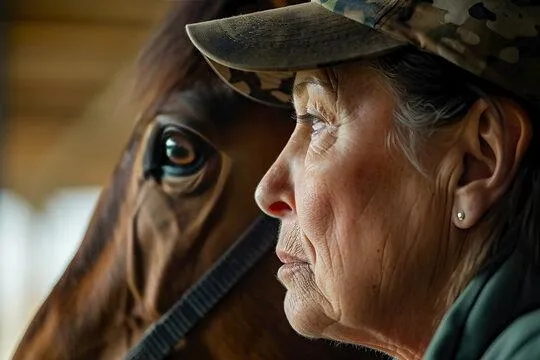
According to Miguel Ocegueda, Director of Clinical Partnerships at Headstrong, “This ‘warrior identity’ is ingrained into military service members.” In other words, Ocegueda goes on to say that these men and women are trained for years to be independent and self-forgetful, carrying a get-the-job-done-at-all-costs attitude. This means that seeking help for a perceived mental health issue is anathema to their training.
It is also true that veterans with mental health issues tend to discount it. They see fellow service members with missing limbs or obvious wounds and think, “I’m whole. They need help more than me.”
Veterans will also shy away from traditional types of therapy because talking about their experiences not only forces them to relive them in a way that feels damaging all over again but seems trivial in comparison.
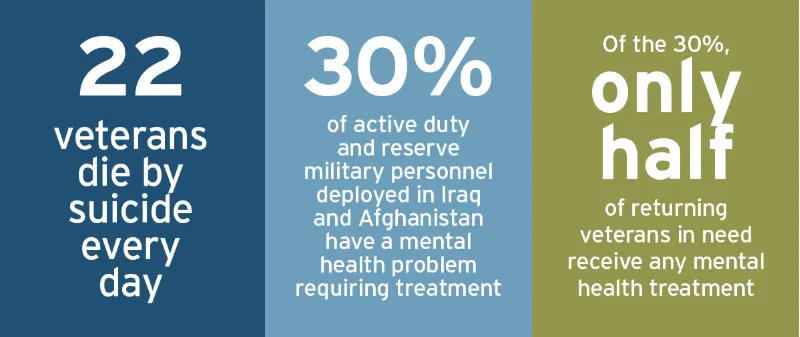
The Need
The Department of Defense Suicide Event Report states that for every soldier lost in combat, 25-30 take their own lives. It’s a staggering statistic and one that should make every American pay attention. After all, these are the men and women who put their lives on the line for our country.
But even if the soldier doesn’t take his/her own life, the effects of mental and emotional trauma are so great that their lives, and the lives of their families, are forever changed – and not for the better. These soldiers may suffer from a wide range of self-destructive behavior that leaves them alone and living on the streets.
So there exists a very real need to reframe the discussion around treatment for mental health issues facing veterans as well as a need to find alternative types of therapy programs that can not only help them heal but remove the stigma attached to the process.
The Answer
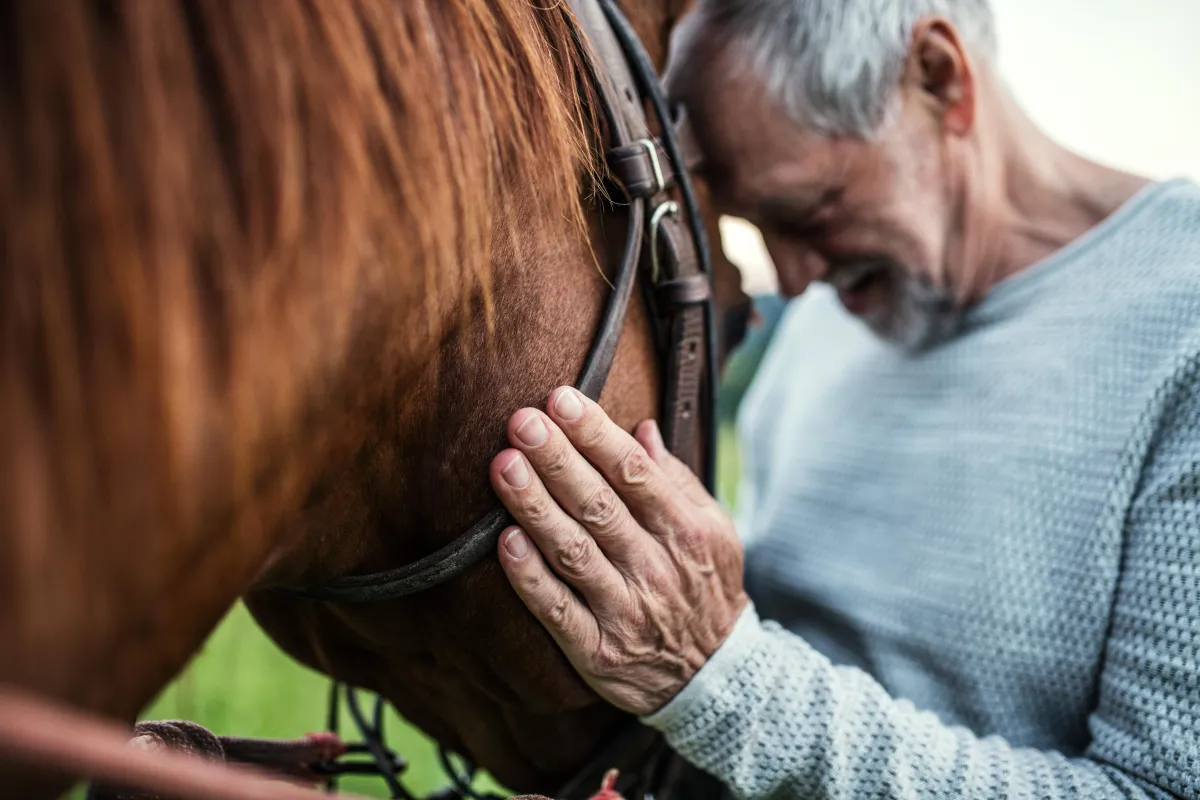
Across the country, there is growing number of therapy programs using horses as their counselor-in-chief. Whether it is riding atop this glorious animal or merely caring for it, it’s been proven that these animals have successfully helped people suffering from all types of physical and psychological conditions, including depression, anxiety, cerebral palsy, autism, addiction, eating disorders and PTSD.
The benefits of interacting or riding a horse are not new. The therapeutic effects date back to the ancient Greeks, who gave horseback rides to raise the spirits of the chronically and incurably ill. There are now more than 600 equine-assisted psychotherapy and learning programs worldwide.
Equine-therapy is a holistic approach that offers veterans a safe environment in which they can connect with another sentient being, practice empathy, learn self-acceptance, enhance social skills and recapture a sense of calm.
“The horse is the perfect mirror; they are very emotional beings; we’re only starting to realize how intelligent they are,” Gabrielle Gardner, a therapy counselor of Shine For Life told The Guardian.
Participants in equine-therapy programs often report feeling more centered and oriented in the present. They feel less controlled by regrets, guilt, and resentments and more independent, self-supportive and self-aware.
Veterans often say that they never thought they’d be able to bond with another person again—to feel that personal connection. Combat had done that to them. But interacting with a horse helps them to explore their feelings because the animal responds to them in a positive way, doesn’t judge and doesn’t ask questions. It can transform the way the individual feels about themselves and how they interact with others.
FROM OUR BLOG

Lower Your Tax Bill!
How Your Tax Deductible Donation Can Make a Difference
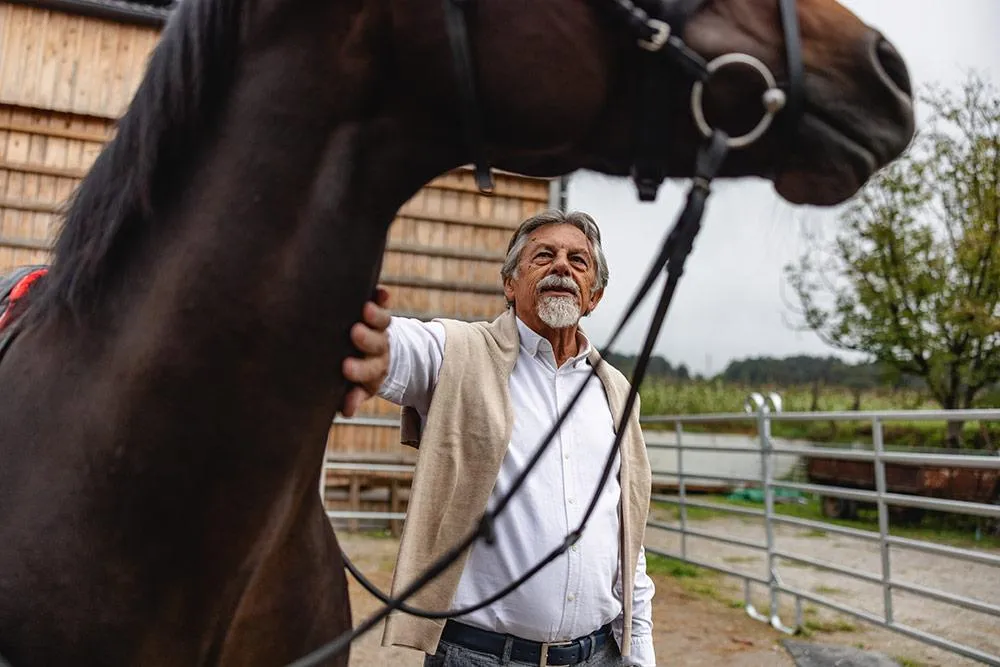
Healing Through Horses
How Horses are Changing Lives for Veterans with PTSD
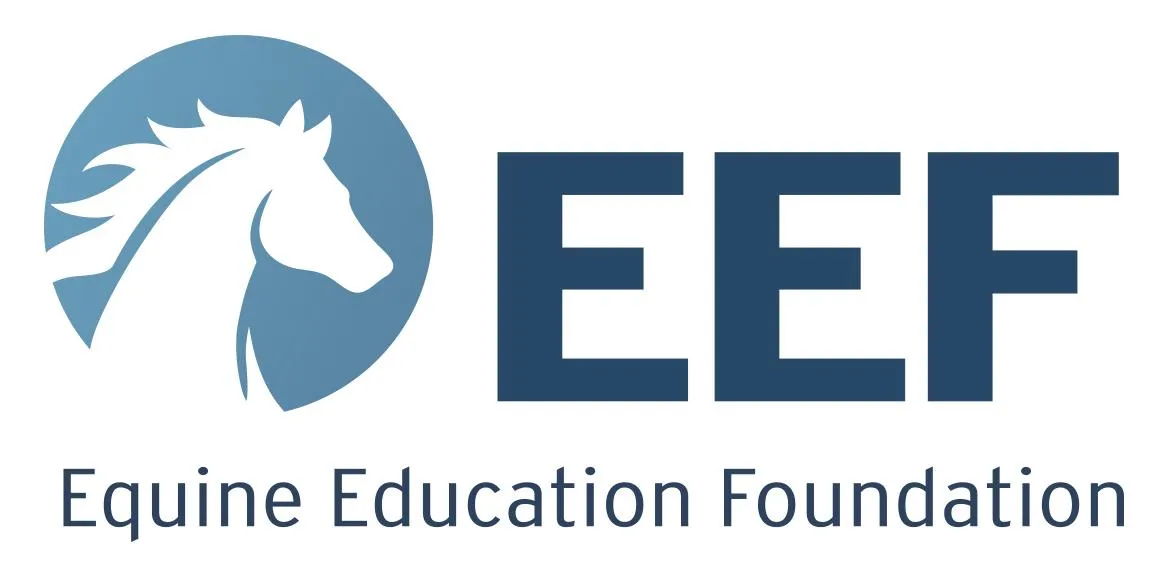
524 Oak Shade Road
Shamong, NJ 08088
609.346.1997
WHAT WE DO
OUR MODEL
2026 Education Foundation, a 501(c)3 nonprofit organization. All rights reserved.